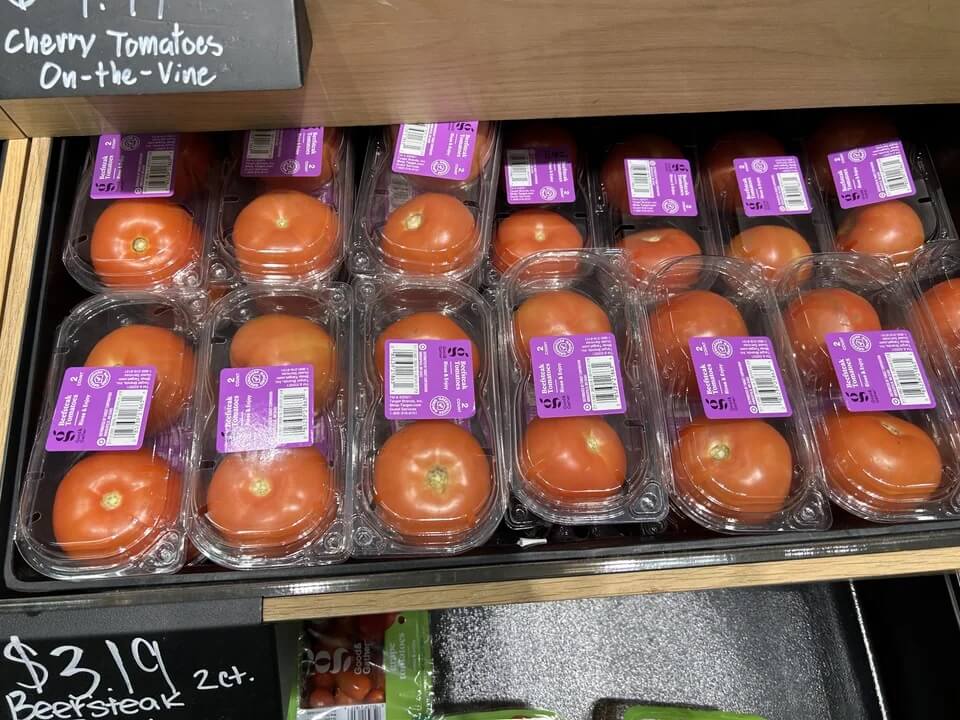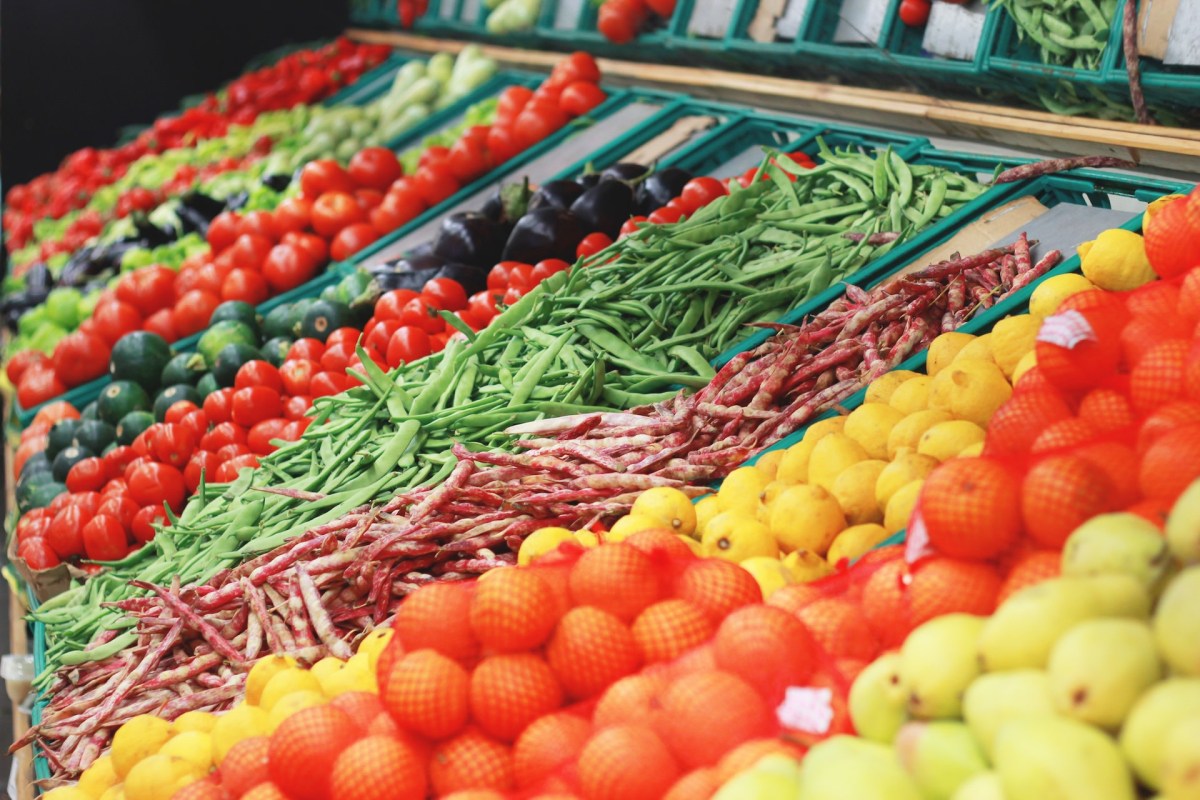One shopper was in disbelief at the wasteful use of plastic packaging in their grocery store's produce aisle.
"This is ridiculous, right?" they demanded. "Or is there a reason for the plastic?"
Their post appeared in r/Anticonsumption, a subreddit where members often call out companies for generating excessive plastic waste. The post included a photo of the packages that this user found so upsetting: two-packs of beefsteak tomatoes, each in a clear plastic box with a printed label.

Most shoppers are used to seeing larger fruit and vegetables such as tomatoes simply piled up on supermarket shelves where shoppers can select the ones they want. Usually, only small produce like grapes or pre-prepared items need their own packaging. But it's becoming sadly common to see more and more plastic on every visit to the store.
"I am in Thailand right now and they wrap single bananas in a thick plastic packaging," said one commenter.
Another user pointed out the reason that corporations do something so wasteful, even though it raises costs and creates plastic waste that's difficult to recycle.
🗣️ What's most important to you when you buy cooking oil?
🔘 Cheapest option 💰
🔘 Healthiest option 💪
🔘 Most planet-friendly option 🌎
🔘 Never really thought about it 🤷
🗳️ Click your choice to see results and speak your mind
"Plastic costs pennies per pound," they said. "Tomatoes selling for $2-$3/lb are worth a couple cents of structural clamshell packaging to the retailer."
As they pointed out, plastic does two jobs: It keeps the tomatoes pretty so customers are more likely to want them, and it makes it easier to ship the produce long-distance with minimal losses. All of that makes the manufacturer money.
"Especially since neither the retailer nor the shipper is on the hook for the end of the product life cycle," they added.
Their comment highlights another form of waste that's usually invisible: shipping. Produce that's transported long-distance has to be carried by trucks and trains that burn fuel and spew air pollution. This traps heat in the atmosphere and raises the temperature of the planet.
You can avoid both excess plastic and pollution from shipping by buying local, or even growing your own produce. There's also a company developing a more eco-friendly way to protect fruits and veggies without using plastic.
Join our free newsletter for cool news and actionable info that makes it easy to help yourself while helping the planet.









